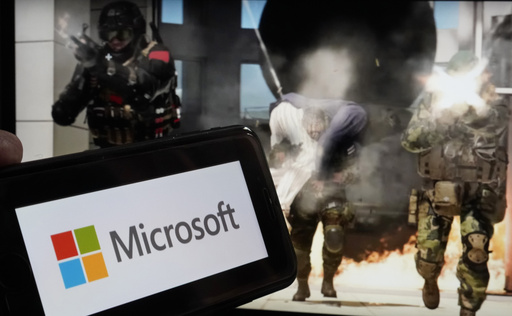
DUBAI, United Arab Emirates — The small Middle Eastern nation of Kuwait has prohibited the launch of the video game “Call of Duty: Black Ops 6,” which prominently features the infamous Iraqi leader Saddam Hussein and incorporates events from the Gulf War of the 1990s.
Although Kuwait has not made an official announcement regarding the game’s ban, it coincides with the nation’s ongoing struggles with the repercussions of the Iraqi invasion. This decision also reflects a broader challenge faced by video game developers as they navigate historical and cultural sensitivities in their creative offerings.
This first-person shooter video game depicts CIA operatives engaged in battles that unfold in both the United States and the Middle East. Game trailers showcase burning oilfields, a stark reminder for many Kuwaitis who witnessed the destruction wrought by Iraqi forces, which resulted in severe ecological and economic devastation. Throughout the conflict, Iraqi troops damaged or ignited over 700 oil wells.
The promotional material for the game also includes visuals of Saddam Hussein and symbols of Iraq’s former three-star flag. The multiplayer mode, a popular feature of the franchise, contains a segment titled Scud, depicting a desert confrontation in Kuwait inspired by the Soviet missiles launched by Saddam during the war. Another segment is named Babylon, evoking the ancient city in Iraq.
Activision has confirmed in a statement that the game “has not been approved for release in Kuwait,” although they did not provide further clarification.
The company added, “All pre-orders in Kuwait will be canceled and refunded to the initial point of purchase. We remain optimistic that local authorities will reconsider their stance, allowing players in Kuwait to experience this new addition to the Black Ops series.”
The Kuwaiti Media Ministry did not reply to inquiries regarding this issue.
The “Call of Duty” franchise, which began in 2003 with a focus on World War II, has expanded to become a lucrative empire now under Microsoft’s ownership, though it has encountered controversy as its narratives delved into sensitive geopolitical matters. Notably, both China and Russia have restricted access to certain installments of the series. A 2009 entry even allowed players to engage in a terrorist incident at a Russian airport, resulting in civilian casualties.
Conversely, there have been recent video games that have received acclaim for their mature handling of Middle Eastern themes. For instance, Ubisoft’s “Assassin’s Creed: Mirage”, released last year, was praised for its depiction of Baghdad during the Islamic Golden Age in the 9th century.
